When I was looking for my first RV, one of my first questions was: What is the easiest one to own? RVs were more of a mystery to me, and while I now feel very comfortable in any style, I know that many of you reading this may have the same question. Well, Hands down, the easiest RV to own is a Class B van. Let me tell you why.
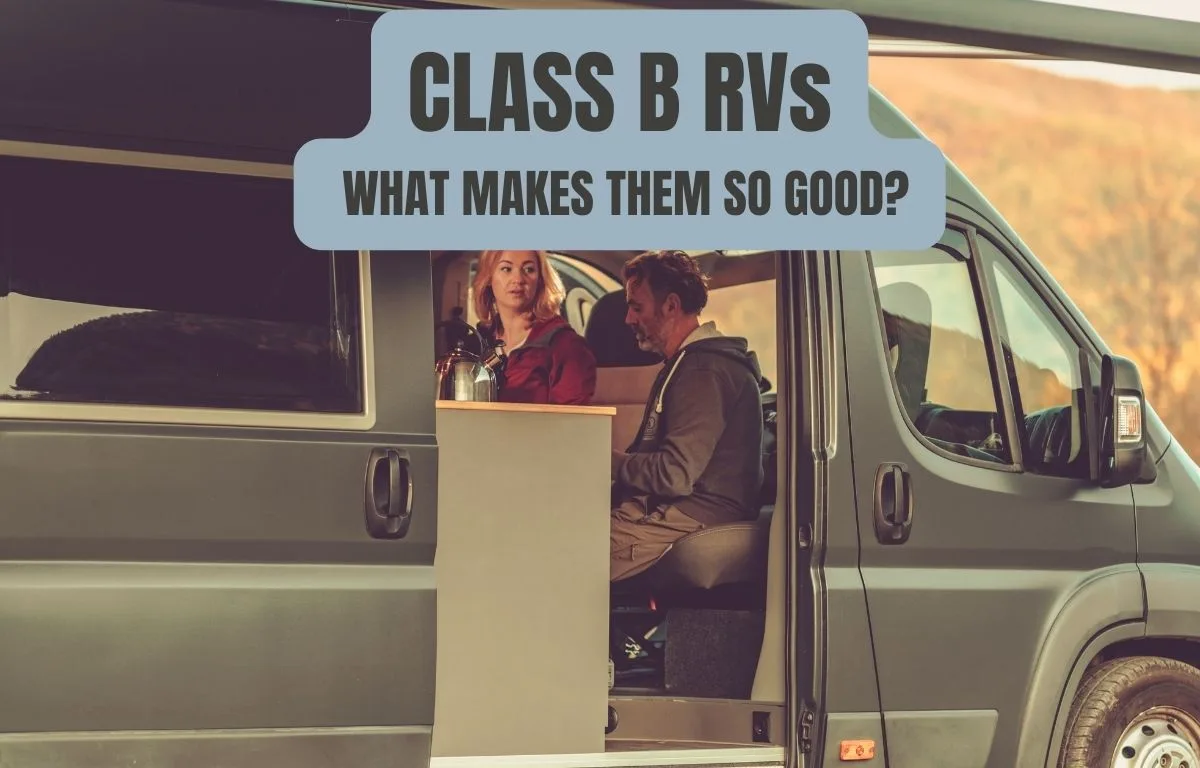
The easiest RV to own is the Class B RV, as it offers a comfortable and easier driving experience, much like that of a large van. With their compact size and practical layout, Class B RVs provide a seamless transition for new RV owners while offering all the amenities for an enjoyable road trip.
Top 6 Reasons Why a Class B RV is Easy To Own:
- Maneuverability: Due to their smaller size, Class B RVs are easier to drive on the road and can easily access tighter spots, such as parking lots or campsites.
- Fuel Efficiency: Compared to their larger Class A and Class C counterparts, Class B RVs generally have better fuel efficiency, making them less expensive to operate on long trips.
- Maintenance: With fewer systems and components to manage, maintenance for Class B RVs tends to be more straightforward and less time-consuming.
- Storage: When not in use, Class B models require less storage space than larger RVs, making them a more practical choice for homeowners with limited space.
- Amenities: Although typically smaller than other RVs, Class B models still provide all the essential amenities for a comfortable trip, including sleeping quarters, a kitchenette, and a bathroom.
- Insurance and Registration Costs: Due to their size and lower value compared to larger RVs, Class B models often have lower insurance and registration costs, making them a more affordable option for ownership.
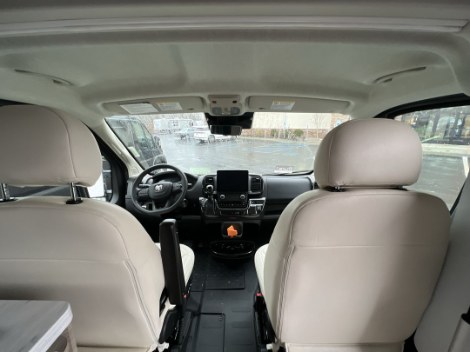
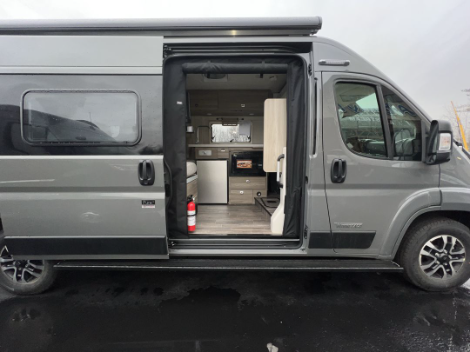
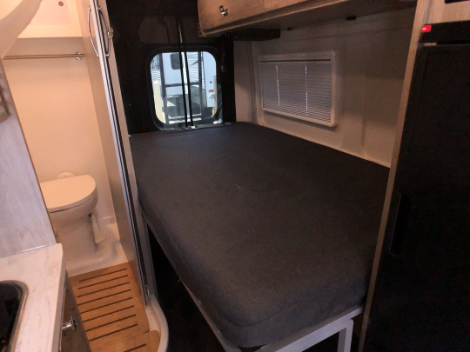
As you can see, the Class B RV is an all-around versatile RV. Also, if you have your heart set on a drivable RV, it’s an excellent choice for anyone seeking a more manageable and economical recreational vehicle option. Its combination of easy driving, fuel efficiency, and essential amenities make it the ideal choice for a hassle-free and enjoyable RV experience.
Understanding Why Class B RVs Are The Easiest To Own
A Class B RV, also commonly known as a camper van or conversion van, offers a unique blend of convenience and compactness in the recreational vehicle market. These vehicles are built using van chassis and are generally smaller than their Class A and Class C counterparts. This reduced size often translates to easier handling and lower overall ownership costs, making Class B RVs a popular choice among many travelers. If you’ve driven a larger SUV or truck before, you will be find driving a Class B.
Class B RVs are designed to offer an efficient use of space, which includes comfortable sleeping areas, basic kitchen facilities, and a compact bathroom. While the amenities and living space may be more limited compared to larger RVs, many first-time RV owners and solo or couple travelers find the Class B RV to be the perfect balance between comfort and accessibility. I personally think some of the creativity in storage and features in Class B are miles ahead of other RVs.
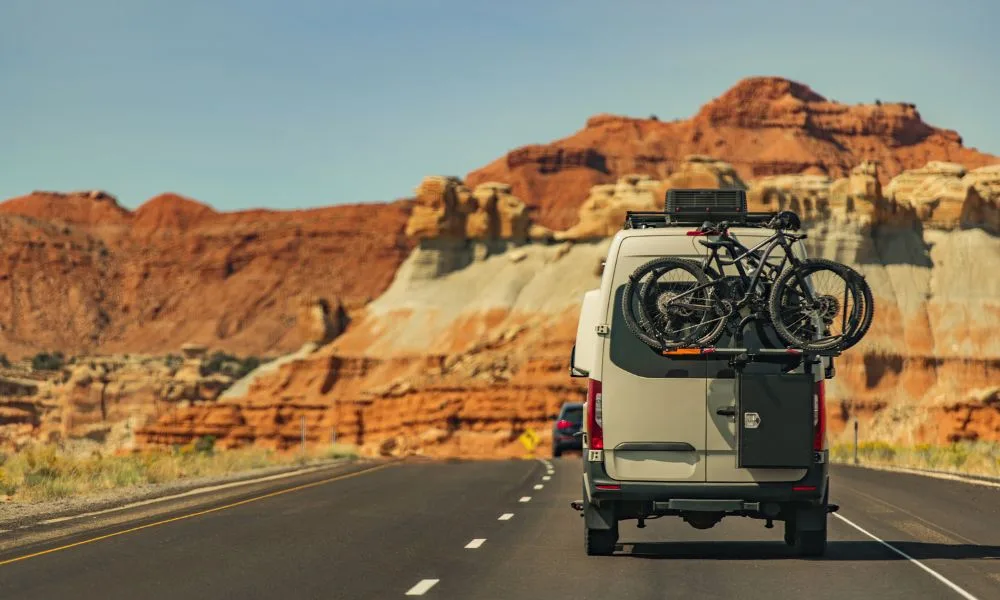

The popularity of this smaller drivable RV has increased in recent years, resulting in various models and manufacturers to choose from. Have you heard of #Vallife? Some popular and reputable Class B RV manufacturers include Winnebago, Airstream, Roadtrek, and Pleasure-Way. However, there are many niche companies designing and offering some very cool and unique Class B options. Each offers different models, layouts, and customization options, allowing you to find the perfect fit for your specific travel needs. Want to do a lot of boondocking on 4X4 roads. Not a problem. There’s a van for you? Do you want luxury all around and the most comfortable driving experience possible? Sure, there are options available.
Driving Comfort and Experience
One of the biggest advantages of a Class B RV is the driving comfort they offer. Due to their smaller size and familiar van-like structure, driving a Class B RV offers an experience closer to driving a standard vehicle. While the driving experience may not be identical to a family car, it often feels less intimidating and more manageable than maneuvering a larger Class A motorhome.
Class B RVs typically have a shorter learning curve for drivers who are new to RVing. Many first-time RV owners find that they can confidently handle a Class B on various types of roads and terrains, requiring minimal adjustment regarding acceleration, braking, and turning. This ease of driving is particularly appealing to those who may be apprehensive about driving a larger rig for the first time.

Another factor that contributes to the comfortable driving experience is the reduced impact of wind resistance and crosswinds on smaller RVs. Class B models are often less susceptible to swaying and rocking in windy conditions compared to larger motorhomes. This allows for greater overall stability and control while driving, reducing driver fatigue and ensuring a more enjoyable journey.
Maneuverability and Parking
Maneuverability is another strong selling point for Class B RVs. Their compact size allows for easier navigation through city streets, narrow roads, and tight corners. This maneuverability makes the Class B RV an attractive option for both urban explorations and visits to remote or less accessible locations. I personally wouldn’t want to drive a large Class A or even C RV through busy city streets.
- City parking: The smaller size of a Class B RV makes it significantly easier to find parking in urban areas. Rather than spending time and fuel searching for a spot large enough for a massive motorhome, Class B owners can often fit in standard parking spaces.
- Campground flexibility: Many campgrounds have size restrictions or limited space, making it challenging for larger RVs to find suitable sites. With a Class B RV, campers can enjoy greater campground flexibility, able to fit into tight spots or more secluded areas.
- Off-the-grid adventures: Those who prefer boondocking or off-grid camping will find the Class B RV suitable for navigating narrow or unpaved roads, making it easier to reach remote destinations.
Efficiency and Fuel Economy
Many Class B RV owners appreciate the improved fuel efficiency compared to larger motorhomes. Due to their smaller size and lighter weight, Class B models are generally more fuel-efficient, potentially leading to significant savings over time, especially for frequent travelers.

When comparing gas and diesel engine options, your decision will depend on your travel preferences and priorities. A diesel engine will often offer better fuel economy and more power when climbing steep grades or driving on highways. On the other hand, gasoline models will typically have lower upfront costs and lower costs to maintain.
It’s important to remember that many factors contribute to fuel economy, such as driving habits and terrain. Keeping your Class B RV well-maintained, including proper tire inflation, regular oil changes, and adhering to weight limits, can also contribute to greater overall efficiency. My guess is that it won’t be long until we see a fully electric (EV) Class B RV.
Maintenance and Upkeep
Maintenance and upkeep are important aspects of RV ownership, and Class B owners will find that their needs are generally easier to manage and less expensive compared to larger motorhomes. Due to their smaller size, Class B models typically have fewer systems and components to maintain, resulting in reduced overall maintenance expenses.
Regular maintenance, such as oil changes, brake inspections, and tire rotations, are often performed more quickly and affordably with a Class B RV. Additionally, should repairs be required, finding a suitable mechanic or repair shop is usually less stressful, as the vehicle is smaller and more accessible than a larger motorhome. Since the van is equipped with a standard gas or diesel motor, even your regular repair shop will be able to help you out.
It’s also worth noting that many Class B RVs are built on dependable van chassis from brands like Mercedes-Benz, Ford, and Ram. This means parts and service availability are widespread, simplifying maintenance and repair needs for owners.
Amenities and Space
While the Class B RV may be the easiest to own in terms of drivability, maneuverability, and maintenance, it’s essential to consider the trade-offs in terms of amenities and space. These models offer a more compact living space, with a focus on optimizing functionality and efficient use of available square footage. Most amenities, such as cooking appliances, bathrooms, entertainment options, etc., will be smaller than you would find in a larger RV.
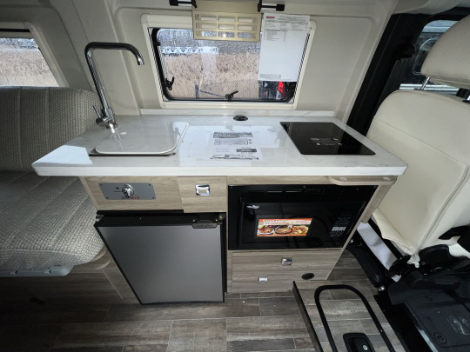
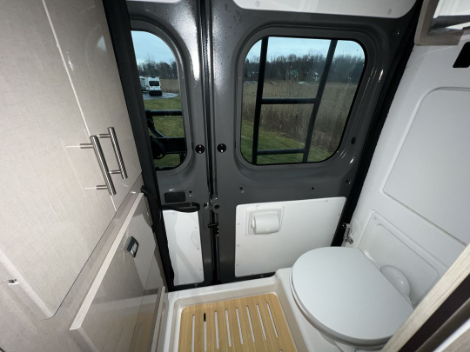
Class B RVs typically provide sleeping accommodations for two to four people, a small kitchenette, and a compact wet bath. Many models also come equipped with innovative storage solutions and convertible furniture to make the most of the available space. While some travelers may find the close quarters cozy and enjoyable, others may prefer the additional space provided by larger RV models.
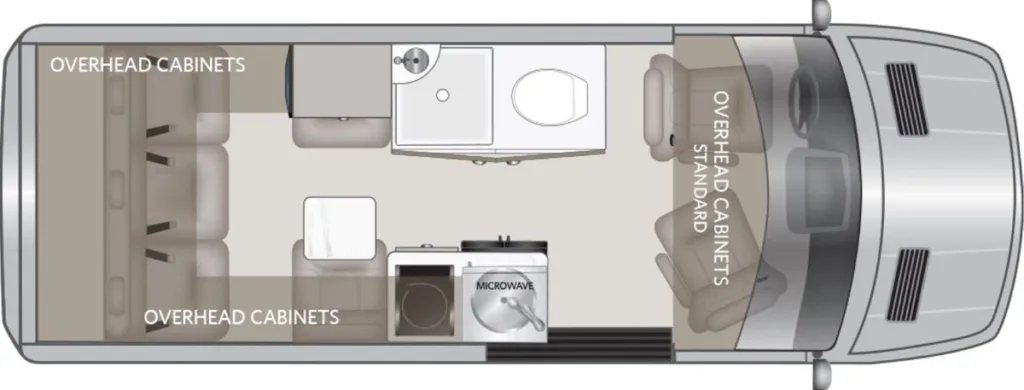
It’s essential to carefully assess your preferences regarding living space and amenities to ensure that a Class B RV will meet your travel and lifestyle needs. Consider aspects like the kitchen area, sleeping arrangements, and bathrooms, as well as any additional conveniences you may value or require. If you’re seriously considering purchasing a Class B RV, I highly recommend you visit an RV show, where you’ll have the ability to walk through dozens of models and compare the sizes, features, and costs. This will give you more knowledge when you begin the search for your perfect van.
Cost and Affordability
Class B RVs can vary significantly in terms of price, with entry-level models generally offering fewer features and more affordable price points, while higher-end models can come with a much higher cost, with some luxury models crossing well into six figures. It’s essential to consider your budget and specific preferences when comparing different Class B RVs on the market.
One area where Class B RVs can shine in terms of affordability is the lower total cost of ownership compared to larger motorhomes. As mentioned earlier, factors such as maintenance expenses, fuel efficiency, and ease of parking and driving can come together to create a more budget-conscious travel experience for many RV owners. It’s much more similar to car ownership, and with care, it can provide many years of useful service.
It’s crucial, however, to carefully consider the purchase price or financing rates in combination with operating costs, as first-time RV buyers may be surprised at the initial cost of some Class B models. By doing diligent research and choosing a Class B RV that fits within your budget and lifestyle, you’ll likely enjoy the utmost convenience and ease of use that these vehicles have to offer.
